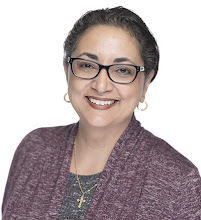Blawgging & Professionalism - Part IV
IV. LAWYER AND JUDGE
Lawyers and judges owe each other respect, diligence, candor, punctuality, and protection against unjust and improper criticism and attack. Lawyers and judges are equally responsible to protect the dignity and independence of the Court and the profession.
1. I will always recognize that the position of judge is the symbol of both the judicial system and administration of justice. I will refrain from conduct that degrades this symbol.
2. I will conduct myself in court in a professional manner and demonstrate my respect for the Court and the law.
3. I will treat counsel, opposing parties, witnesses, the Court, and members of the Court staff with courtesy and civility and will not manifest by words or conduct bias or prejudice based on race, color, national origin, religion, disability, age, sex, or sexual orientation.
4. I will be punctual.
With Houston traffic, even the simple things can be a challenge.
5. I will not engage in any conduct which offends the dignity and decorum of proceedings.
6. I will not knowingly misrepresent, mischaracterize, misquote or miscite facts or authorities to gain an advantage.
Mischaracterizing a previous case does NOT look good, whether intentional or not.
7. I will respect the rulings of the Court.
8. I will give the issues in controversy deliberate, impartial and studied analysis and consideration.
9. I will be considerate of the time constraints and pressures imposed upon the Court, Court staff and counsel in efforts to administer justice and resolve disputes.
This can be difficult to appreciate unless you've had a chance to see for yourself just how much work is involved.
BTW - The theme for this year's SBOT Annual Meeting is (coincidentally) "Honoring the Judiciary."
See Part I, Part II, and Part III.
(data provided from NewsGator Online)

